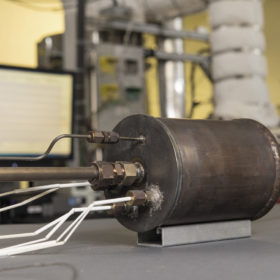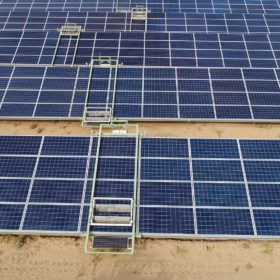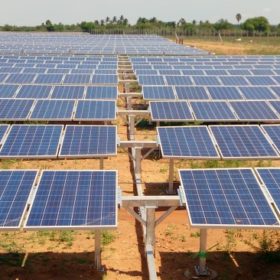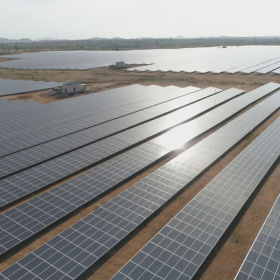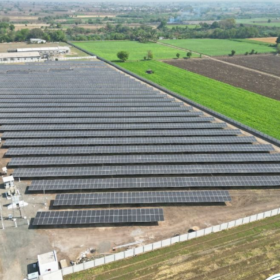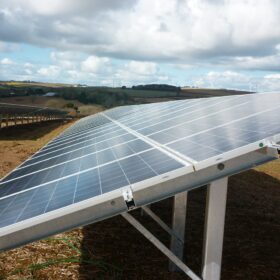The long read: Scientists at Argonne develop new kind of thermal battery
Scientists at the U.S. Department of Energy’s (DOE) Argonne National Laboratory have developed a new kind of thermal battery that can greatly increase the energy efficiency and cost-effectiveness of many industrial processes and shows great promise for use in the solar industry. Liz Thompson reports that Argonne’s Thermal Energy Storage System (TESS) can rapidly capture and store surplus heat so that it can be used as needed. With its pioneering modular design and material advancements resulting in greater efficiency, TESS is a big step forward in thermal battery technology.
EESL, Noida Authority sign agreement on EV charging infrastructure
Noida Authority has selected Energy Efficiency Services Limited to deploy public charging stations under the second phase of the FAME India Scheme. A total of 162 public EV charging stations comprising 108 122kW fast chargers and 54 Bharat DC001 (15kW) are to be installed in the city.
Solar lobby group seeks blanket deadline extension till November 30
The National Solar Energy Federation of India said the project timeline relaxation provided by the Ministry of New and Renewable Energy is insufficient as construction continues to be severely hampered. Labour exodus and procurement delays (due to restrictions on international travel) are among the reasons affecting project progress.
Hitachi ABB Power Grids India wins Rs 120-crore order
The company has bagged an order from state-run Chittaranjan Locomotive Works to supply transformers for goods and passenger locomotive engines.
Narendra Modi to inaugurate 750 MW Rewa solar project tomorrow
The project—set up in Madhya Pradesh—is one of the world’s largest single-site solar power plants. It is also India’s first PV project to supply power to an inter-state open-access customer.
Enel joins the Indian solar gold rush
The Italian utility, fresh from securing its first 300 MW of PV generation capacity in the recent, record-setting tender held by SECI, has teamed up with the state-owned Norwegian Investment Fund to commit to further clean energy facilities in India.
BP commits $70m to UK-India green growth fund
The fossil fuel company will become a partner in the fund, which invests in clean energy projects.
There’s something fishy about this flow battery innovation
Scientists led by MIT have suggested chitin, a carbon and nitrogen-rich material made from waste shrimp shells, could produce sustainable electrodes for vanadium redox flow batteries and other energy storage technologies.
ARCI develops easy-to-clean solar panel coating
The super-hydrophobic coating using functional nanoparticles repels dust deposition on the solar panels and cleans itself by the action of water on the modules.
UK investor NextEnergy acquires 27.4 MWp solar project in Odisha
The plant—constructed and operated by Germany-headquartered IBC Solar Energy—is NextEnergy’s first investment in India as part of its strategy to acquire ready-to-build or operational solar projects across high-growth international markets.
